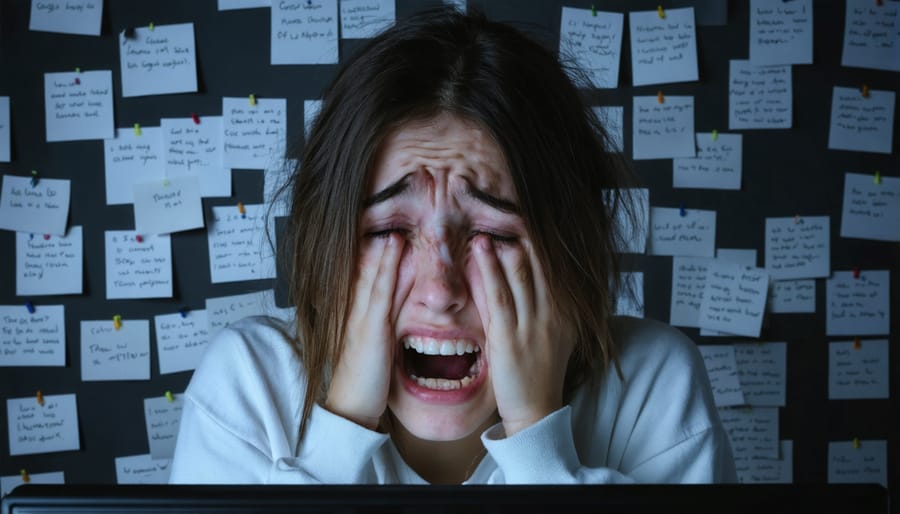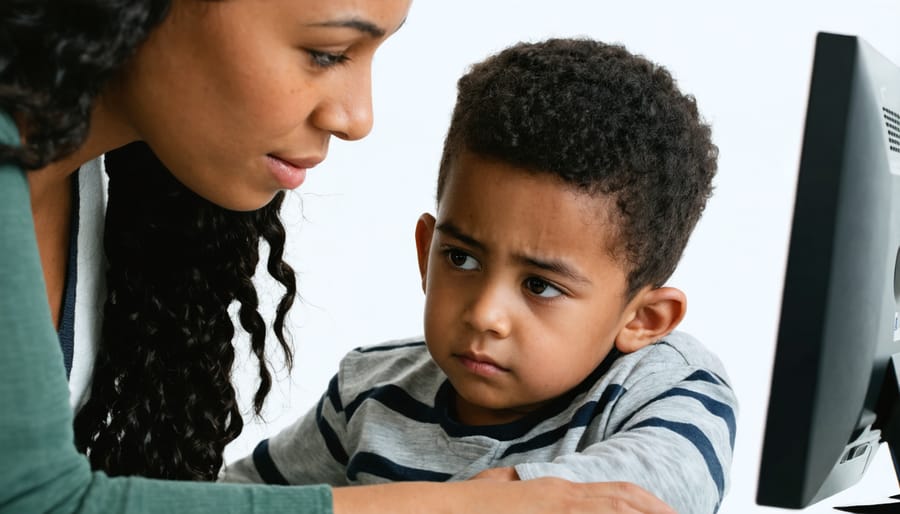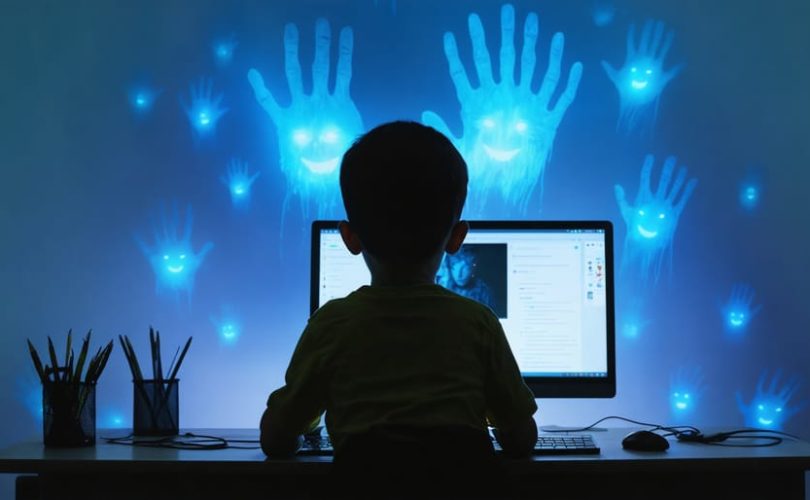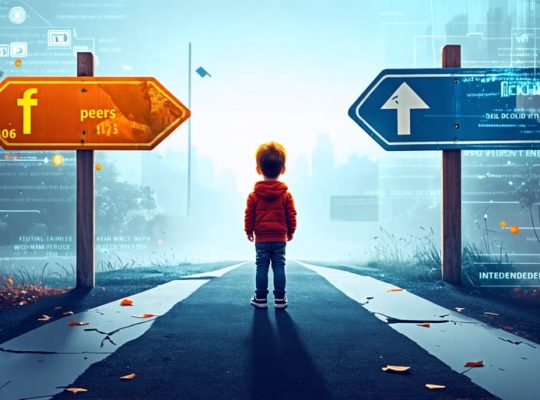Recognize the devastating psychological effects of cyberbullying, which can include depression, anxiety, low self-esteem, social withdrawal, and even suicidal thoughts. Watch for warning signs in your child, such as changes in mood, sleep patterns, appetite, social habits, or academic performance. Take immediate action if you suspect cyberbullying by documenting evidence, reporting it to school authorities or law enforcement, and seeking professional help from a therapist experienced in treating victims of bullying. Provide unwavering emotional support, reassure your child that it’s not their fault, and work together to develop coping strategies and rebuild their self-confidence.
What is Cyber Bullying?

Why Cyber Bullying is Uniquely Harmful
Cyber bullying can be especially harmful to a child’s mental health due to several unique factors. The anonymity of the internet allows bullies to hide behind fake profiles, making their attacks feel more threatening. Victims often don’t know who is bullying them, leading to paranoia and distrust. Cyber bullying can happen 24 hours a day, 7 days a week, leaving no safe haven. Kids can be bombarded with hurtful messages anytime they check their phone or computer.
Another damaging aspect is the potential for bullying to spread rapidly and be witnessed by a large audience online. Embarrassing pictures, videos, or rumors can go viral, compounding the victim’s humiliation. Targets may feel like the whole world is against them.
Escaping cyber bullying can feel impossible since it invades home life via technology. Before the internet, home was often a refuge from bullies. But now, the harassment follows kids everywhere. This non-stop torment can lead to anxiety, depression, and even suicidal thoughts in some cases.
The detached nature of online interactions may cause bullies to say crueler things than they would face-to-face. Empathy gets lost behind a screen. Victims suffer blows to their self-esteem, confidence, and overall well-being. The scars can linger long after the bullying stops.
The Mental Health Impact

Depression and Anxiety
Cyberbullying can have a devastating impact on a child’s mental well-being, often leading to clinical depression and anxiety disorders. Constant exposure to online harassment, cruelty, and humiliation can erode self-esteem, causing feelings of worthlessness, sadness, and hopelessness – hallmarks of depression. Cyberbullying victims may withdraw from friends and activities they once enjoyed, experience changes in sleep and eating habits, or struggle with concentration and academic performance.
Moreover, the pervasive nature of cyberbullying can fuel intense anxiety, as victims feel they can never escape their tormentors. They may live in constant fear of the next hateful message or public shaming, leading to panic attacks, social anxiety, and even agoraphobia. Some may turn to self-harm or substance abuse to cope with their distress.
If you suspect your child is being cyberbullied, watch for red flags like sudden mood changes, avoidance of social situations, or secretive online behaviors. Offering a listening ear, unconditional support, and professional help can be crucial in helping them heal.
Self-Harm and Suicidal Ideation
Cyber bullying can have devastating effects on a young person’s mental health, including increasing their risk of self-harm and suicidal thoughts. Studies show that victims of online harassment are significantly more likely to engage in self-injurious behaviors like cutting, burning, or hitting themselves. The constant emotional pain and feelings of hopelessness caused by cyber bullying may lead them to see self-harm as their only escape.
Even more alarming, research has found a strong link between cyber bullying and suicidal ideation in young people. The relentless attacks on their self-esteem, relationships, and sense of safety can make victims feel trapped and desperate. Some may start having thoughts of suicide as a way to end their suffering. It’s crucial for parents, teachers, and healthcare providers to be aware of these risks and watch for warning signs like sudden changes in mood, isolation, or expressions of hopelessness. If you suspect a child is considering self-harm or suicide, seek professional help immediately. With support and treatment, they can learn healthy coping strategies and start to heal from the trauma of cyber bullying.
Substance Abuse and Risky Behaviors
Children who are victims of cyber bullying may turn to unhealthy coping mechanisms to numb the emotional pain. Some may experiment with drugs or alcohol, seeking an escape from the constant torment. Others might engage in risky behaviors like self-harm, reckless driving, or unsafe sexual activity as a way to regain a sense of control or release their pent-up anger and sadness.
These destructive habits can quickly spiral, leading to substance abuse disorders or life-threatening situations. It’s crucial for parents and educators to recognize the warning signs, such as sudden changes in behavior, secrecy, or a decline in academic performance.
By fostering open communication and providing a strong support system, caring adults can help vulnerable kids find healthier ways to process their emotions and build resilience. Professional counseling may also be necessary to address any underlying mental health issues and develop positive coping strategies. With compassion and early intervention, we can prevent bullied youth from turning to dangerous vices.
Recognizing Warning Signs
As a parent or educator, it’s crucial to recognize the warning signs that a child may be experiencing cyber bullying and its detrimental effects on their mental well-being. Pay close attention to changes in their behavior, such as sudden withdrawal from social activities, increased secretiveness about online interactions, or a noticeable decline in academic performance. If a child expresses reluctance to attend school or engage in activities they once enjoyed, it could be a red flag.
Emotional indicators like persistent sadness, anxiety, or irritability should also raise concerns. A child who is being cyber bullied may exhibit signs of low self-esteem, self-blame, or hopelessness. In severe cases, they might even express thoughts of self-harm or suicide, which require immediate intervention and support.
Watch for physical symptoms too, such as frequent headaches, stomachaches, or disrupted sleep patterns. These can be manifestations of the psychological distress caused by cyber bullying. If a child turns to unhealthy coping mechanisms like substance abuse, it’s a serious indication that they need help.
Open communication is key. Encourage the child to share their experiences and feelings without judgment. If they are reluctant to talk, gently express your concerns and reassure them of your support. In the tragic event of a parent’s suicide, be especially attentive to the child’s emotional state, as they may be more vulnerable to the impact of cyber bullying during this difficult time.
If you suspect a child is being cyber bullied, don’t hesitate to seek professional help from school counselors or mental health experts. Early intervention can make a significant difference in mitigating the long-term effects on their mental health and well-being.
Getting Help
If your child is being cyber bullied, it’s crucial to provide them with support and resources to help them cope. Start by listening to your child with empathy and validating their feelings. Let them know that the bullying is not their fault and that you’re there to support them.
Consider working with a counselor or therapist who specializes in helping children deal with bullying and its effects on mental health. They can provide your child with coping strategies, help boost their self-esteem, and work through any anxiety, depression, or trauma resulting from the cyber bullying.
It’s also important to involve your child’s school in addressing the issue. Many schools have policies and procedures in place to deal with cyber bullying. Reach out to school administrators, counselors, or teachers to report the bullying and discuss how they can support your child. They may be able to provide resources, mediation, or disciplinary action against the bullies.
In addition, there are many online resources available to help your child cope with cyber bullying. Organizations like StopBullying.gov, the Cyberbullying Research Center, and the National Bullying Prevention Center offer information, tips, and support for children and families dealing with bullying.
Remember, your love, support, and advocacy can make a significant difference in helping your child navigate this difficult experience. By seeking help from professionals, working with the school, and accessing resources, you can help your child build resilience and overcome the negative effects of cyber bullying on their mental health.

Conclusion
In conclusion, cyber bullying can have profound and lasting effects on a child’s mental health, including depression, anxiety, low self-esteem, and even suicidal thoughts. It’s crucial for parents, teachers, and healthcare providers to be aware of the warning signs and take proactive steps to prevent and address online harassment. By fostering open communication, teaching digital citizenship, and seeking professional help such as counseling when needed, we can support children in navigating the digital world safely. Remember, recovery is possible, and no child should have to face cyber bullying alone. With awareness, compassion, and the right resources, we can create a more positive online environment for all.







